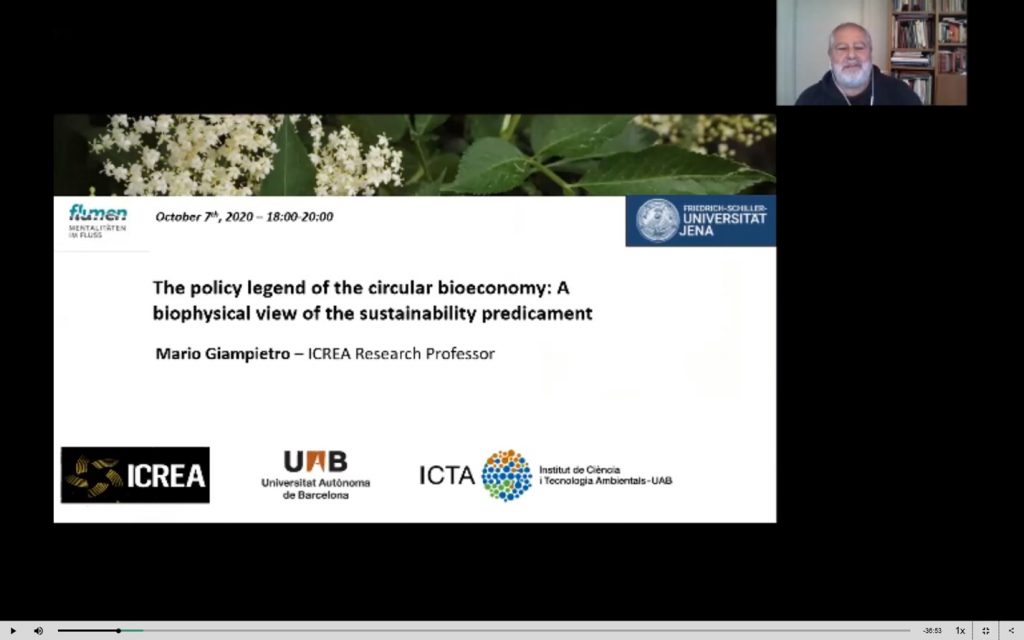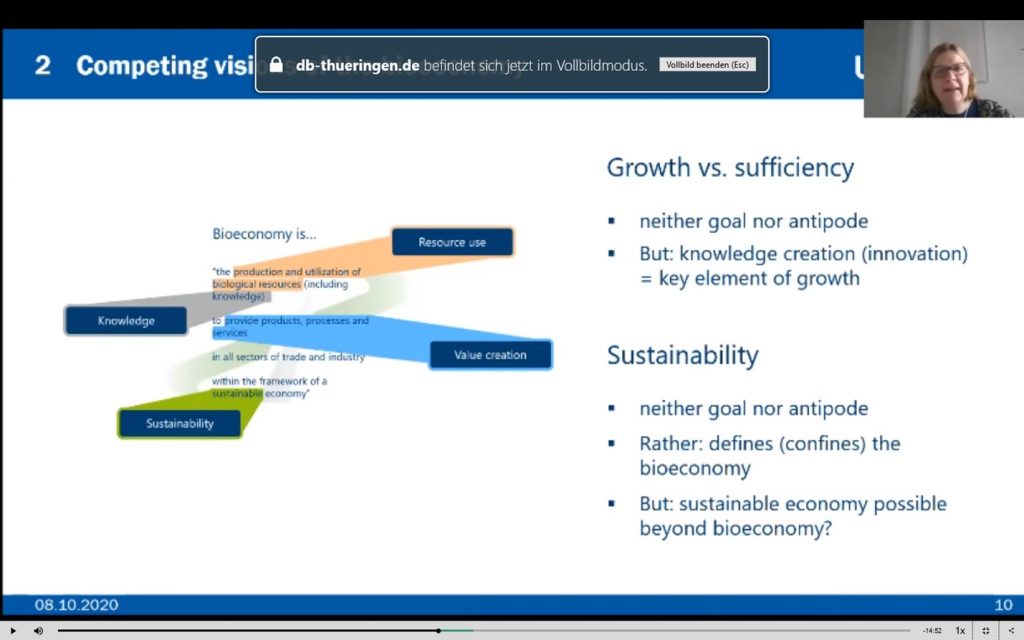Two highlights of our workshop “It’s the Bioeconomy, stupid! The future of growth and the promise of the bioeconomy” held on the 7th and 8th of October 2020 were the contributions of Mario Giampietro (Universitat Autònoma de Barcelona) and Daniela Thrän (Helmholtz Center for Environmental Research GmbH, 2012 to 2019 member of the German Bioeconomy Council). More information on the workshop (programme and other contributions)
The videos of their contributions are available clicking the links in the titles:

Mario Giampietro, ICREA Research Professor, Institute of Environmental Science and Technology (ICTA) at the Universitat Autònoma de Barcelona: “The policy legend of the circular bioeconomy: A biophysical view of the sustainability predicament”, online lecture, October 7th, 2020. Moderation: Anne Tittor

Daniela Thrän, UFZ Helmholtz Centre for Environmental Research Leipzig, 2012-2019 member of the German Bioeconomy Council: “Bioeconomy’s Contribution to Economic Growth”, online keynote speech, October 8th, 2020. Moderation: Dennis Eversberg.
The two speakers took opposing positions:
As the title suggests, Mario Giampietro was skeptical of the idea of a circular economy as an essential element of a sustainable bioeconomy. From a bio-physical perspective, he analyzed the inputs and outputs in a bioeconomy that – as an energy and material processing system – is embedded in natural processes. To his opinion, a complete circular economy is not possible. A bioeconomy also requires a lot of energy (which today is mostly obtained from fossil resources) and there are always waste products that cannot be reprocessed. Furthermore, to operate the global economy with biomass, the available land on earth is far from sufficient. Conflicts over land are inevitable and have been carried out with violence for a long time in South America, for example. His lecture made it clear once again that technology, including biotechnology, cannot solve environmental problems if questions of social injustice and the unequal distribution of power are not asked at the same time.
Daniela Thrän, on the other hand, took a cautiously optimistic perspective. In her contribution, she outlined the achievements already accomplished (e.g. genome editing) and the potential for increasing productivity (more food from the same country) that improved biotechnology enables. In addition, she emphasized that in the German public and the bioeconomy debate, the topic of sustainability plays a much bigger role today than it did a few years ago. For example, the effects of steadily increasing production are also being critically discussed in the Bioeconomy Council. Her contribution stimulated a discussion about the benefits of technological gains in efficiency, if they were repeatedly “eaten up” by rebound effects and ultimately led to higher raw material and energy consumption. As Daniela Thrän explained, the problem of rebound effects in biotechnologically oriented research is considered to be the biggest question yet to be solved. However, it has not yet been part of concrete political measures. Also because many political measures relating to the bioeconomy are controversially discussed, Daniela Thrän advocates the support and processing of these negotiation processes through social science research.

